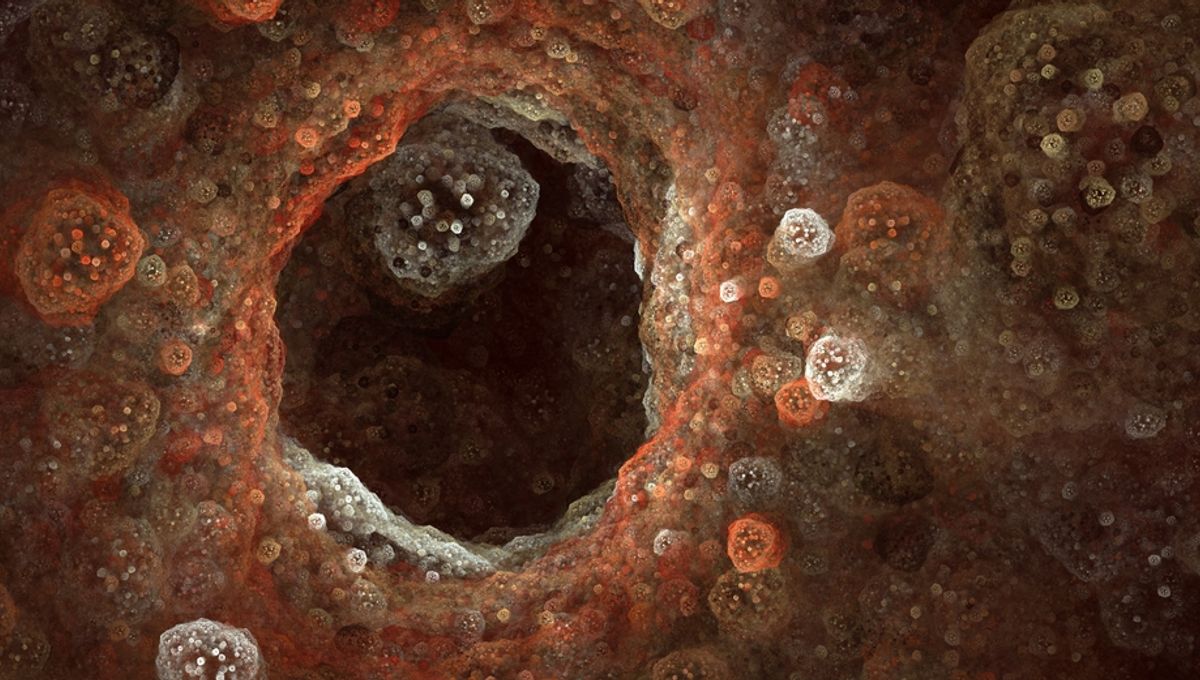
There are potentially trillions of different microbe species on Earth, and we’ve identified the tiniest fraction of them. That’s partly because finding them requires such cutting-edge technology, but it sometimes also comes down to more practical issues – like just looking in the right place.
A new project led by researchers from across the USA, Sweden, and Algeria has discovered some particularly exciting new types of bacteria – ones that they think may have significant consequences for the biotechnology industry. The reason they’ve gone undiscovered for so long? They were hiding hundreds of meters underground in a previously unexplored subterranean cave.
It’s not unsurprising for new bacteria species to be found underground. By some estimates, nearly three out of every four microorganisms on Earth live in the planet’s subsurface, rather than on the surface. However, the discovery of these particular microorganisms has some pretty interesting implications – ones that could eventually be game changing for about six percent of the population.
“We found strains that can produce antimicrobial substances or that can break down gluten, a substance that can cause inflammatory reactions in the intestines of many people,” said Natuschka Lee, a researcher at the Department of Ecology and Environmental Sciences at Umeå University, Sweden, and one of the authors of a new paper on the discovery, in a statement. “The bacteria were also found to be able to tolerate the extreme conditions found in our digestive system.”
In other words, these newly-discovered bacteria may have some important applications in treating people with gluten allergies or intolerances – and the researchers hope to investigate exactly this in future. Still more were shown to be able to break down lactose, another common cause of digestive issues.
Even if you couldn’t care less about drinking milk and eating bread, this discovery is still extremely cool. That’s not because of what it can do for our insides, but what it tells us about our outsides – waaay outside, that is.
“Subsurface ecosystems are underexplored environments, and they are generally considered extreme,” the paper explains. “They are secluded from the surface, nutrient limited, and characterized by lack of light.”
If that strikes you as almost the exact opposite of life on Earth, then you’re not alone: researchers have been increasingly interested in these subterranean environments lately, as they hope to gain an understanding of ecosystems on planets other than our own.
“The surface of Mars is a very oxidizing, radiation-heavy environment where liquid water is not really stable for an extended amount of time,” said Vlada Stamenković, a research scientist at NASA’s Jet Propulsion Laboratory in Pasadena, California, at an astrobiology conference in 2016. “It’s the worst place to look for life-sites on Mars.”
Instead, he suggested, groundwater – that is, the water that exists within the subsurface of the planet – “might be the only habitat for extant life on Mars, if it still exists today.”
Even more intriguingly, the bacteria found in the study are closely related to the Bacillus group of microorganisms – a group which is already much studied in astrobiology thanks to their impressive survival abilities. B. subtilis, for example, which some of the cave bacteria species showed more than 99 percent similarities with, has been shown to be able to survive on the red planet, and other members of the group may even be able to thrive off-planet.
Let’s not get ahead of ourselves – the new discovery is impressive enough on its own. Not only does it open a new avenue for people with food intolerances and probiotic requirements, but it’s also an incredible insight into the amazing diversity of life right here on Earth.
“This study is yet another example of the fantastic potential of exciting microbes on our own planet,” said Lee. “Despite intensive research, we have so far only managed to map a small part of all microbes found on earth.”
The paper is published in the journal Microbiology Spectrum.
Source Link: New Cave Bacteria Might Help Treat Gluten Intolerance – Or Find Life On Mars